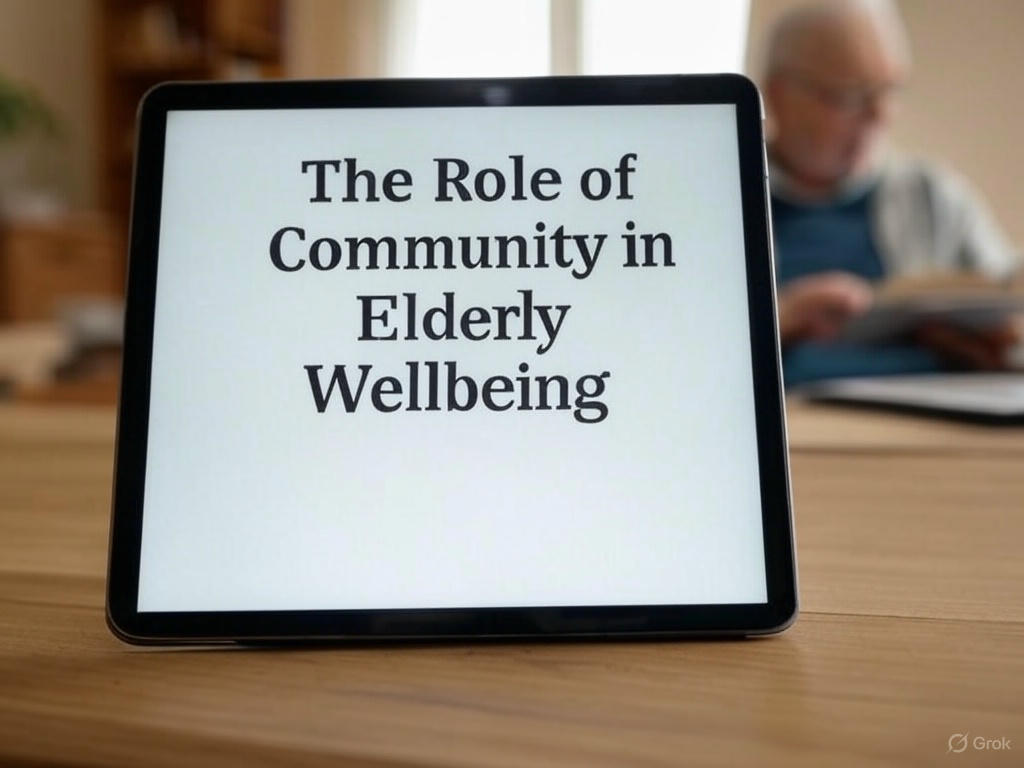The Role of Community in Elderly Wellbeing

With increasing age of people, their physical needs are often the focus, but social and emotional well -being play an equally important role in maintaining general health. One of the most influential factors for the promotion of happiness and health in older people is the community – both in the traditional sense of social circles and in the more structured environments of care bans.
Here is an overview of the important role of the community when improving the well -being of older people.
Fighting loneliness and isolation
Loneliness is a growing concern for older adults, especially for those who live alone or have limited mobility. Studies consistently show that chronic isolation can lead to depression, anxiety and even a decline in cognitive function. A strong sense of community helps to counteract these effects. Regardless of whether it is regular social meetings, meals together or simple everyday conversations, to have people near spirits and to promote a greater sense of belonging.
Community does not have to mean a large group. Sometimes it is the presence of some friendly faces and reliable connections that make the biggest difference. For elderly people, it can only know to listen to someone or offer help can reduce the feeling of helplessness and stress.
Promotion of active lifestyle
A lively community can also promote physical activity and mental stimulation – both older people are essential for the well -being. Group exercises, garden clubs, book circles and community walks not only offer the opportunity to stay active, but also to engage socially. These interactions can sharpen cognitive skills and improve physical coordination, which reduces the risk of falls or sedentary conditions.
When older people are surrounded by peers and supervisors who motivate them and participate with them, it promotes an environment in which they tend to thrive.
Access to reliable support and care
Supporting communities also offer a safety net. Problems are often found in others and addressed faster – whether it is a decline in health or a need for emotional support. In nursing homes or environments for assisted living, this feeling of common vigilance can be particularly valuable.
The community is the focus of experience for those who are looking for trustworthy nursing services with Somerleigh Court. Institutions like this should not only promote physical health, but also emotional and social well -being. With organized activities, compassionate employees and a warm, inviting atmosphere, residents can continue to live fulfilling life and at the same time maintain the care they need.
Building purpose and self -esteem
Apart from camaraderie and care, the commitment of the community of older adults can help keep a feeling for the purpose. Regardless of whether it is younger people to participate in volunteer programs or simply share stories and experiences, to contribute to greater self -esteem and general happiness from others.
People often underestimate how much importance can be found in everyday connections that are formed by life in the community. These small, yet strong interactions are the glue that binds a person to a feeling of identity and relevance.
Diploma
A connected life is often healthier and happier – especially in our later years. The community plays an indispensable role in supporting the well -being of the elderly, offering camaraderie, promoting activities and providing reliable care. Whether by family, friends or a committed living environment, the promotion of these connections can significantly improve the quality of life at older age.





